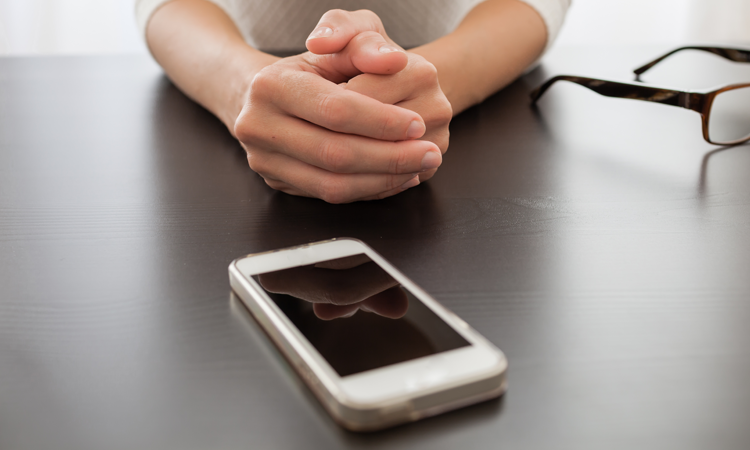
There is no doubt that technology has empowered us and brought a humongous amount of data to our fingertips. But experts around the world are concluding that overuse of Internet and tools to access it – tablets, smartphones – are beginning to take their toll on our mental health.
“Our digital existence should complement our real existence, not replace it,” says David Ryan Polgar, digital lifestyle expert and co-founder of the blog, Overplugged.org. “The difficulty is that there are no barriers to prevent digital technology from completely overwhelming our life.” A 2006 study at Stanford University found that one in eight Americans had trouble staying away from the Internet for several days in a row. Moreover, approximately 6% of the respondents in the study felt their Internet use was adversely affecting their relationships.
But don’t worry. It’s never too late to make amends. Here are some top-notch suggestions to help you unplug and take control of your life:
- Reflect, reflect, reflect: Start by assessing what kind of relationship you share with technology. This quiz by Capio Nightingale Hospital in London can help you figure out if you’re clinging too much to the world of gadgets. Counselor Karla Helbert, MS, LPC, suggests asking yourself these questions: Are other important things suffering because of my online activity? Have I struggled to meet deadlines for work or missed something I was responsible for due to being online? If you answered yes to either of these, it is time for some intervention.
- Create tech-free zones: At any given time, you are surrounded by at least four to five gadgets. Time to de-clutter. “If you wanted to eat fewer cookies for a physical diet, you wouldn’t keep a cookie in your pocket all the time,” says Polgar. The first place to start could well be your dinner table. “A smartphone that is vibrating on the table will serve as an unhealthy distraction to actually connecting with the people across the table,” says Polgar. When you’re about to dine next time, leave your iPads and iPhones in the bedroom and try to enjoy your meal with your companions, without worrying about how many comments you’ve received in response to your latest Facebook post.
- Break time-sapping tech habits: Compulsive e-mail checking is one of the many bad habits technology has given us. “Once habits are established, the habit learning system suggests the action whenever you are in that situation,” says Art Markman, Ph.D., professor of psychology and marketing at the University of Texas at Austin. “You cannot simply choose not to engage in that action.” Breaking a habit takes some work. For example, to get rid of the habit of constantly checking mail, Markman suggests setting a timer in the morning and checking your email for only 15 minutes. “Then, move on to do bigger projects like writing, reading, or learning a new skill,” he says. Rinse, repeat.
- Learn gradual detachment: Have you ever felt restlessness when you couldn’t go online because of the Internet servers being down? “The perceived need to be online is not an actual or physical need, but what we tell ourselves about that perceived need creates anxiety,” says Helbert. “Checking and being on the device automatically relieves the anxiety that builds up when the person is away from the device, but only in the short-term.” Here’s how to treat tech anxiety: Ask a friend to quietly notice how long you can go without checking devices. Once you know your baseline period, you can try extending it by five minutes each day. When you feel restless and can’t wait to check gadgets, calm yourself by statements like, “This is anxiety, it will pass.” Gradually, you’ll notice you can stay away from gadgets and social media for longer durations – and still be happy.
- Use positive technology: While this may seem like counterintuitive advice, some tech tools can actually help you manage your time better. For example, if Google Chrome is your browser, you can install the StayFocusd app to keep tabs on the time you spend on certain websites. Or try the My Minutes app for Android and iPhone that helps you time real-life personal and professional activities, such as exercise, cleaning or studying. These applications and similar ones are especially valuable if your work requires the use of a computer.
Do you think your use of technology has gotten out of hand? Would you be willing to try these solutions? We’d love to hear about your experiences with detoxing from technology – sound off in the comments!
To find out about Rose’s thoughts on how to live a happier life, click here



4 Comments
Jenifer
I find it helpful just to do things the way ore technology of smartphones WhW. I feel it taking up too much of my time. For example write a physical letter to a friend, use a physical map or read a physical book. Stepping away from the virtual makes me happy and more present in the moment. Being Pret and enjoying things rather than trying to
Document them as they are happening would do wonders to make people happier and connected.
Carla Steffano
I need my phone to get business done but I’m trying to turn it off as soon as I walk in the house at night. Works well for me so far! Thanks for raising the awareness about this topic
Charolette
These tips are very helpful, especially number 5! Thanks for sharing.
Madeleine
I needed to read this so bad! Everything is on our phones now and I notice myself glued to it all the time. I forgot my phone at home the other day and it was the most therapeutic thing. Thanks for this great read!